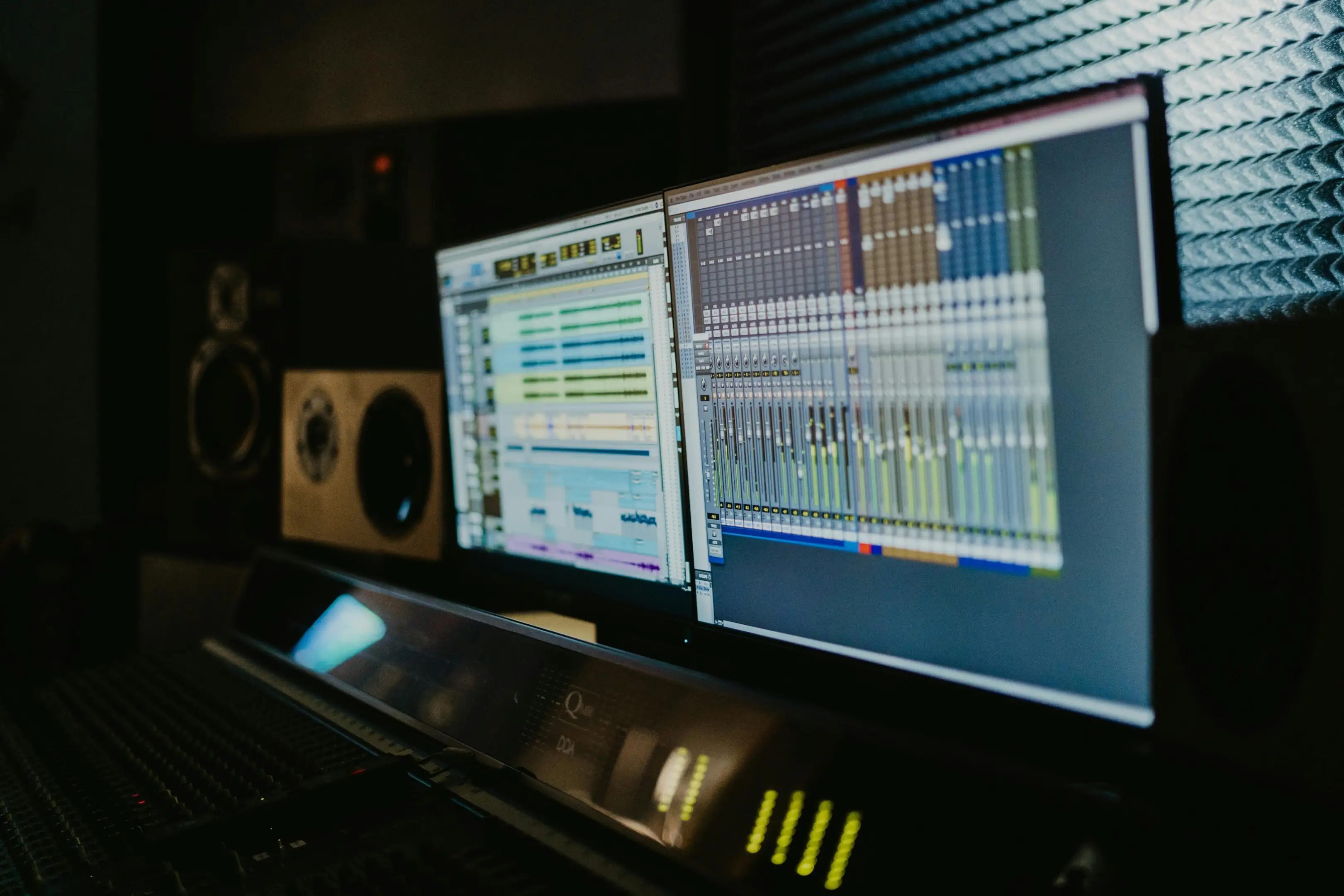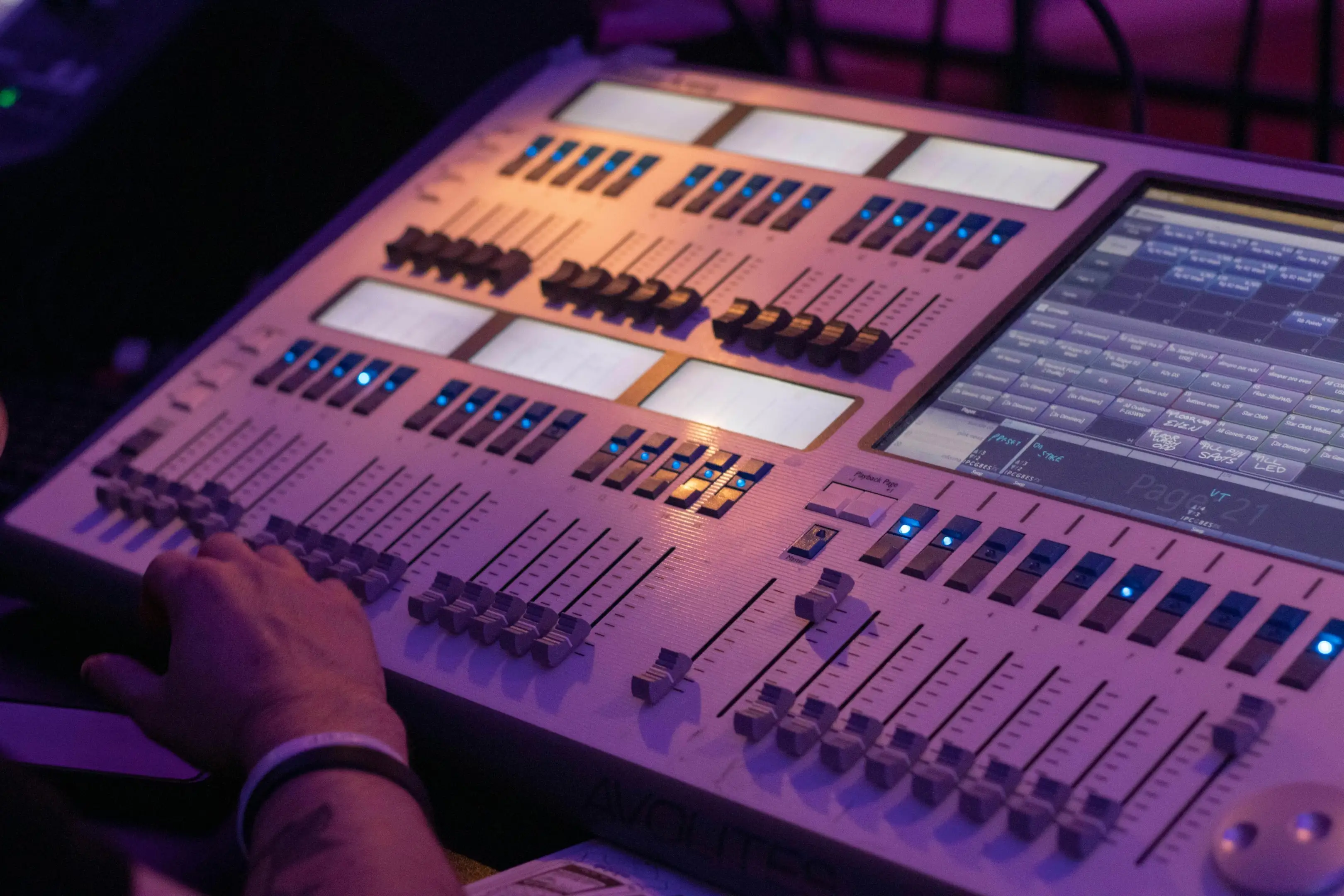For many, the final part of the music production process can be a bit of a mystery. After all, the mastering process shifts greatly depending on the genre in question. Hip hop music is no exception taking its lyrical focus, powerful low end bass sound, and crispy drums into account.
Fortunately, we've put together a guide on how to master a hip hop track so that you can create an excellent starting point, even if you aren't an experienced engineer. In this blog post, we'll walk you through everything you need to know to effectively master hip hop songs from the comfort of your own studio.
Why Is Mastering Important?
Mastering is the final portion of the music production process in which you and your engineer put the final touches on the mix, optimizing the dynamic range and other qualities of the mix for playback on a wide variety of playback devices. The mastering stage usually includes using tools like a multi band compressor, limiter, and equalizer to create a stronger, more cohesive sound.
In terms of hip hop, mastering can bring special sauce to highlight a key frequency range, which is often the lower end of the spectrum in hip hop. Whether you want to emphasize the kick drum, 808 or recurring bassline hook, mastering gives your music the cherry on top before its ready for commercial release.

Mastering Hip Hop: Understanding What Most Hip Hop Songs Have in Common
Whether you want to build a unique sound or stick to the polished standards of hip hop music, it's important to remember that hip hop music typically has the following characteristics:
- Emphasis on the Low End: Hip hop music tends to have powerful bass, kick, and 808 sounds
- Lyrical Clarity: The sound of the vocals or rap is arguably the most important. In most hip hop songs, the vocals should be crystal clear and upfront in the mix.
- Crispy Drums: You can add depth to a hip hop track and balance out the heavy low end with punchy hi hats or drum transients that add groove to the beat.
Understanding Ideal Output Levels
Whenever you're mastering a track, it's key to understand your intended output(s), as this will affect how you master the audio. For instance, tracks intended to play on a club speaker system should be tested in mono, since this is likely how the track will be played out in the real world.
In the case of most musicians, you're probably processing for streaming outlets like Spotify and Apple Music. Keep in mind that these platforms typically normalize audio to the following levels:
- Spotify and Tidal: -14 LUFS
- YouTube: -13 LUFS
- Apple Music: -13 LUFS
These levels don't necessarily have to be your goal, but you'll want to ballpark around these levels to create a consistent listening experience:
How to Master a Hip Hop Track in 5 Steps
Once you have a solid mix, it's time to move to the mastering process. Here are 5 steps to help you master your hip hop track:
Find Your Reference Track
To start, find some reference tracks that serve as a model for what you'd like your master to sound like. Throughout the mastering process, you'll want to refer back to this track, providing you guidance regarding balance across the frequency spectrum, equalization, and compression. Since there is so much variation in hip hop, sometimes finding ideal references is half the battle.
EQ and Frequency Balancing
While most of your equalization should be worked through during the mixing stage, the whole mix may benefit from further processing with an EQ while mastering. For instance, you might tame the low end and cut down muddy frequencies by applying a broad high pass filter to the mix. As a general rule, hip hop songs tend to have a strong, clear low end and crispy, punchy drums like snares or hi hats that stand out in the mix.
Stereo Imaging
You'll also want to play with the stereo image of a mix, or how wide or narrow a mix is perceived. This is another instance in which reference tracks come in handy - take a listen to how spread your ideal track is across the stereo field and adjust your mix to match. Make sure to test this portion of the process through stereo monitors to ensure you're not losing any desired character in the mix.
Compression and Dynamics
Arguably the most important part of mastering is optimizing the dynamic range of your track, or finding a way to keep volume levels fairly consistent without losing any of the original character or energy of the track. In the event that a specific frequency range requires more attention than others, you'll want to use multi band compression to apply specific automation to the problem areas.
You might use light compression to help glue the vocal recording to the backing beat, or you might go for something more drastic for a more danceable hip hop track. When you apply compression, or any other effect for that matter, be sure to A/B test with it off and on to make sure the process is adding to your recording rather than stifling it.
Limiting, Export, and Playback
Once you've ironed out the basic balance of your song, the final step is to run your mix through a limiter. You can think of a limiter as a supercharged compressor, providing the final boost to your track for playback across streaming platforms, stereo systems, and more. Be cautious with the limiter: it's typically recommended that the limiter should have more or less an average of 3 dB of gain reduction.
After exporting your mix, it's important to test it out in various listening environments. Try your master out in the car, through headphones on your phone, and through monitors. If anything is sounding off, it's time to go back to rinse and repeat the process.

Alternative: Use Online Mastering Services
Learning to master your music can be a rewarding process, but it can be a tedious one. If you're eager to master your tracks quickly and effectively in the meantime, consider using an online mastering service like Emastered . Designed by Grammy-winning engineers, our mastering engine instantly masters you track, powered by AI. Toggle between genre, stereo width, EQ compression, and more to adjust your master in real-time.
Emastered allows you to upload a reference track so that the algorithm can make informed decisions behind the processing of your track. Each plan includes unlimited Wavs and hi-res MP3s so that you can create as many masters as you need when inspiration strikes.
Hiphop Mastering FAQ
Are you hoping to learn the secrets behind mastering hip hop music? Check out these commonly asked questions and answers:
How to master hip hop music?
To master hip hop music, you first need a final mix of the original track. The hip hop mix can then be processed using equalization, compression, stereo imaging, and other processes to create the final master.
What is mastering in rap?
Mastering hip hop or rap songs is the final stage of the recording process in which a song's mix is optimized for ideal playback on streaming services, CDs, live settings, and any other intended output. Mastering usually includes balancing of levels, the use of compression and limiters, along with some light equalization.
How loud should a hip hop master be?
Your loudness level will depend on your intended output for the track. For instance, many streaming platforms normalize audio to -14 LUFs, so this loudness level is taken into careful consideration throughout the mastering process.
How long does it take to mix and master a rap song?
The length of mixing and mastering process can vary greatly depending on the conditions of the song and the perspectives of the mixing and mastering engineer to the artist. Generally speaking, mixing takes longer than mastering. Mastering can be completed within a couple of days, mixing may vary well take longer since you're often going back and forth with a larger amount of variable elements.

Mastering rap vocals and the rhythmic beat behind it is an art form in its own regard. Learning the mastering process can take some trial and error, but hopefully this guide gives you a solid starting point for bringing your hip hop mixes over the finish line. Enjoy building a polished sound for your hip hop beats.





